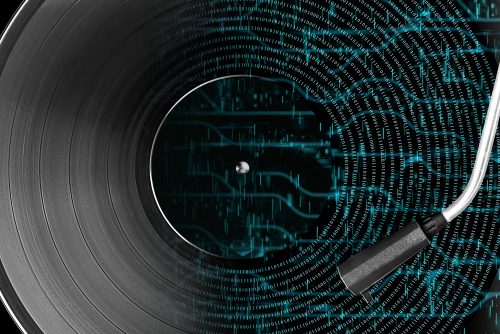 Generative artificial intelligence (AI) is redrawing the boundaries of creativity, including musical creativity, and raising complex legal issues. Recently, AI’s ability to reproduce the voices of famous singers has sparked debates about the permissible use of such technologies. Drake, The Weeknd and, most recently, Bad Bunny have all been involved in such cases. John Lennon‘s song “Now and Then,” completed posthumously with the help of AI, is another example of both the creative potential of AI and the legal issues surrounding its use.
Generative artificial intelligence (AI) is redrawing the boundaries of creativity, including musical creativity, and raising complex legal issues. Recently, AI’s ability to reproduce the voices of famous singers has sparked debates about the permissible use of such technologies. Drake, The Weeknd and, most recently, Bad Bunny have all been involved in such cases. John Lennon‘s song “Now and Then,” completed posthumously with the help of AI, is another example of both the creative potential of AI and the legal issues surrounding its use.
Artists Drake, The Weeknd, and Bad Bunny complained about unauthorized reproduction of their voices using generative AI and previous recordings. John Lennon’s actual voice—isolated from a 1970s recording—was used on “Now and Then.” George Harrison, Ringo Starr, and Paul McCartney’s instrumentals were then added. AI merely isolated and enhanced existing tracks under the control of those holding exclusive rights to the relevant material.
Generative AI raises crucial questions from a copyright perspective. While there are those who defend the innovative use of AI in music, some have expressed concern about infringement of the exclusive rights of artists whose works are used to train AI models. Recently, Universal—a major recording label—sued Anthropic in federal court in Tennessee for unauthorized use of the work of its artists for training purposes. Anthropic owns Claude 2—a foundation model similar to ChatGPT.
Another thorny issue is authorship of AI-generated works. Traditional copyright law protects creations that are an expression of a human being’s personality. It is therefore difficult to grant authorship protection to content, be it an audio track, video, or text, that is primarily or exclusively the result of the generative process of an AI model. Consequently, whether and to what extent a work created with the assistance of AI is protectable under copyright law depends on a case-by-case assessment scrutinizing the type and extent of assistance provided by the machine and, most importantly, the contribution made by a human being. In other words, can the work be considered the result of the creativity of an individual, assisted by AI?
Other legally challenging cases involve AI “appropriating” singers’ voices. The voices of artists such as Drake, The Weeknd, and Bad Bunny have been used in this way to create new songs that were then falsely attributed to them.
In Italy, very stringent provisions enshrine real personality rights, which are imprescriptible and may not be waived. Pursuant to Articles 10 Civil Code and 96 LDA (Copyright Law) each individual has the right to authorize (or not) the use of their image, voice, and connotations. The few exceptions provided cannot be invoked by third parties using someone else’s image or voice for purely commercial purposes. The protection provided under the Italian legal system confers injunctive and compensatory protection.
Platforms that distribute music content that have stated they have no qualms about publishing and distributing AI-generated musical tracks will still have to establish procedures that allow blatantly infringing content or cloned artists’ voices to be taken down. Cases that represent more of a gray area—such as classifying a new AI-generated audio track as a derivative work or a work inspired by earlier works used to train AI—will likely end up litigated in court.
Generative AI opens broad new horizons for creativity, including in the field of music, but it is also poised to fuel debate over artists’ rights and the authenticity of works produced by algorithms.

